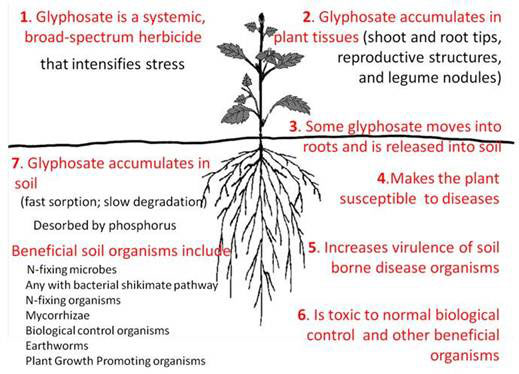Glyphosate Ban in Sri Lanka
Concerned the chemical may be linked to a kidney disease killing agricultural workers, Sri Lanka this week ordered a ban on glyphosate, the active ingredient in Monsanto’s top-selling herbicide Roundup.
https://www.colombotelegraph.com/index.php/banning-glyphosate-for-political-not-scientific-reasons/
https://www.youtube.com/watch?v=k8HqxM2ApKs
Read More

Source: http://www.i-sis.org.uk/Why_Glyphosate_Should_be_Banned.php
Concerned the chemical may be linked to a kidney disease killing agricultural workers, Sri Lanka this week ordered a ban on glyphosate, the active ingredient in Monsanto’s top-selling herbicide Roundup.
Banning Glyphosate For Political & Not Scientific Reasons
https://www.colombotelegraph.com/index.php/banning-glyphosate-for-political-not-scientific-reasons/
‘Ban herbicides that contain glyphosate’
http://www.ipen.org/news/%E2%80%98ban-herbicides-contain-glyphosate%E2%80%99https://www.youtube.com/watch?v=k8HqxM2ApKs
Why Glyphosate Should Be Banned
Glyphosate has contaminated land, water, air, and our food supply; the maximum permitted levels are set to rise by 100-150 times in the European Union if Monsanto gets its way as damning evidence of serious harm to health & the environment piles upRead More

Source: http://www.i-sis.org.uk/Why_Glyphosate_Should_be_Banned.php